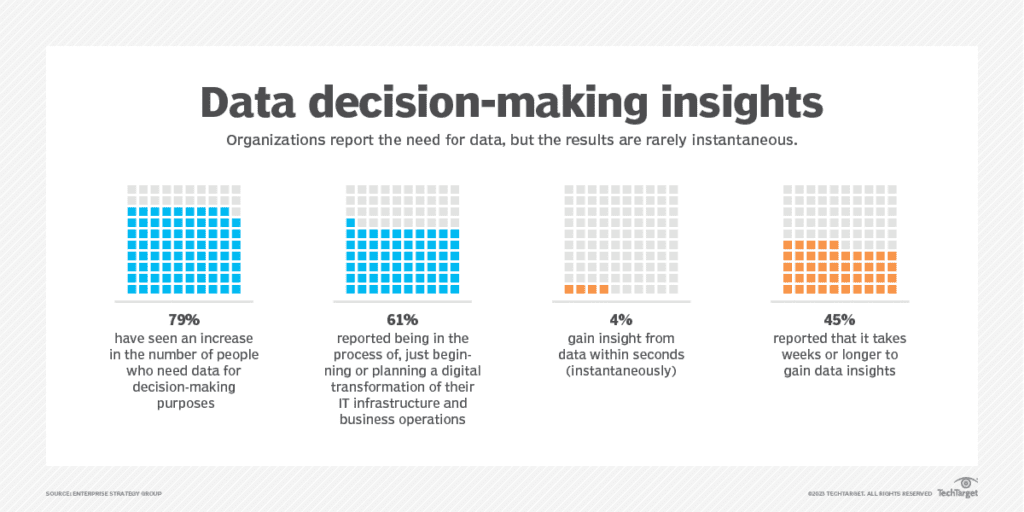Announcements
- Distributed cloud application environments offer tremendous benefits but require radically different application development, IT and business operations. Register for the Leveraging Distributed Cloud Environments virtual summit to learn from top industry experts and solution providers how to make the most of these new environments using containers, microservices, and emerging elements, observability and monitoring tools, and methods for keeping costs manageable.
- Data-centric business models require organizations to manage their underlying data closely with governance and data quality initiatives that meet compliance and data integrity goals. At the Improving Data Management summit, learn from top industry experts and solution providers how to elevate your data management strategies with data governance and quality tools and platforms, the creation of data catalogs and business glossaries, data mapping and classification, workflow management, collaboration, process documentation, profiling, cleansing, and standardization.

Data Models for the Weather
With January coming to an end, we here in the Northeast let out a collective sigh of relief as the month ends without any major snowstorms that tend to happen in the first month of the year. Weather forecasting is a centuries-old practice that has its roots in divination and other less-than-scientific prediction methods, but as we move into the future, our tools allow us to more accurately predict what the future holds.
Our historical approach to weather prediction is based on viewing patterns and creating physics models within the collected data, or Numerical Weather Prediction (NWP). Other methods, such as Deep Learning Weather Prediction (DLWP) that uses historical weather data, are gaining traction as they outperform NWP over longer timeframes. Google’s MetNet-2 uses deep learning algorithms and live satellite inputs to create “nowcasts,” or weather probability predictions in the immediate future.
There has always been jokes at the expense of meteorologists and their inability to accurately predict the weather. This may not be the case for much longer. The models have improved so much that “a modern 5-day forecast is as accurate as a 1-day forecast in 1980.” But even with Google’s foray into meteorology, their predictions are still based on probability. With the increasing popularity and advances in the machine learning field, meteorologists have taken one step closer to becoming the target audience here on DSC.
Scott Thompson
Associate Editor
Contact The DSC Team if you are interested in contributing.
DSC Featured Articles
- Explaining FAIR Data to Aunt Doris
January 31, 2023 at 5:47 pm
by Alan Morrison - Java in Cloud Native Environment: All You Need To Know
January 31, 2023 at 4:13 pm
by Ryan Williamson - NIST Artificial Intelligence Risk Management Framework
January 31, 2023 at 4:00 pm
by ajitjaokar - Exploding vs. Imploding: What the NFL Has to Teach Us About Managing Agile Enterprises, Part II
January 31, 2023 at 3:25 pm
by Howard M. Wiener - Top Android App Development Trends in 2023
January 30, 2023 at 8:54 pm
by James Wilson - Enabling contextual computing in today’s enterprise information fabrics
January 30, 2023 at 8:29 pm
by Alan Morrison - Ten Productivity Hacks using ChaptGPT Generative AI Prompts
January 25, 2023 at 9:45 pm
by Kirk Borne - Innovation at the Convergence of Emerging Technologies: Business at the Edge
January 25, 2023 at 9:43 pm
by Kirk Borne - Five Principles of Safe Driving in AIS (Autonomous Intelligent Systems)
January 25, 2023 at 8:28 pm
by Kirk Borne - DSC Weekly 24 January 2023 – When AI Gets Going, the Going Gets Weird
January 24, 2023 at 5:02 pm
by Scott Thompson
Picture of the Week

